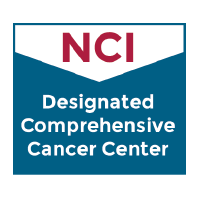
Vaginal Cancer
Vaginal cancer is a rare disease and makes up less than 3 percent of all gynecological cancers. There are four different types of vaginal cancer, including:
- Squamous Cell CancerThe most common type, which usually occurs in the upper part of the vagina. It typically affects women between the ages of 50 and 70.
- AdenocarcinomaThe second most common type. It usually affects women between the ages of 12 and 30, although it occasionally occurs in women of all age groups.
- Malignant Melanomas SarcomasExtremely rare forms of the disease.
It is important to know that even if you have had a hysterectomy, you can still develop vaginal cancer.
Risk Factors
As with many cancers, the exact cause of vaginal cancer is not known for sure. However, some factors may increase a woman's risk for the disease, including:
- Smoking
- Age — women over the age of 50 are most commonly affected by squamous cell vaginal cancer
- History of cervical cancer
- Having had a hysterectomy
- History of genital warts caused by the human papilloma virus (HPV)
- Having had radiation therapy to the pelvic area
In addition, research has shown that young women whose mothers took a drug known as diethylstilbestrol (DES) are at a higher risk for developing the disease. The drug DES was given to pregnant women between 1945 and 1970 to prevent them from having miscarriages.
Our Approach to Vaginal Cancer
UCSF offers innovative, compassionate care in a supportive environment to patients with vaginal cancer. Our team includes gynecologic oncologists, gynecologic cancer surgeons, radiation oncologists and nurses with special training in reproductive cancers. We also work with plastic surgeons for patients who need reconstructive surgery once the cancerous tissue is removed.
We believe that education is a powerful part of the healing process. Our team works with each patient to help her understand her condition and all her treatment options, so we can decide together on the best course of action.
Awards & recognition
-

Among the top hospitals in the nation
-

Best in Northern California for cancer care (tie)
-

Designated comprehensive cancer center
UCSF Health medical specialists have reviewed this information. It is for educational purposes only and is not intended to replace the advice of your doctor or other health care provider. We encourage you to discuss any questions or concerns you may have with your provider.





